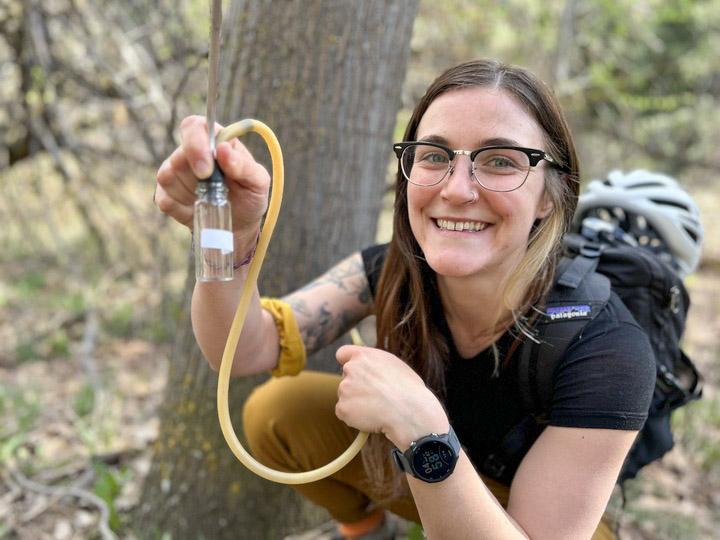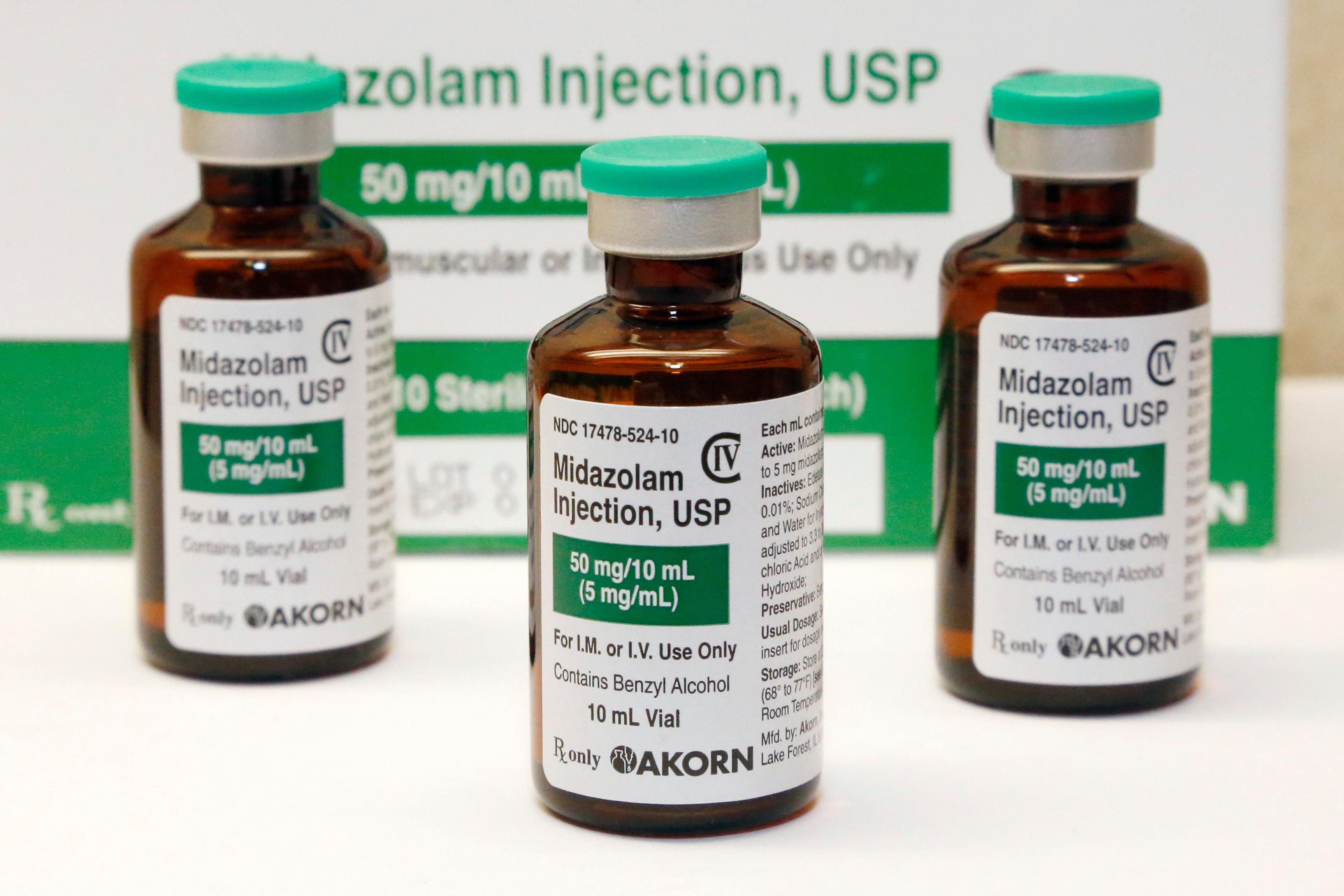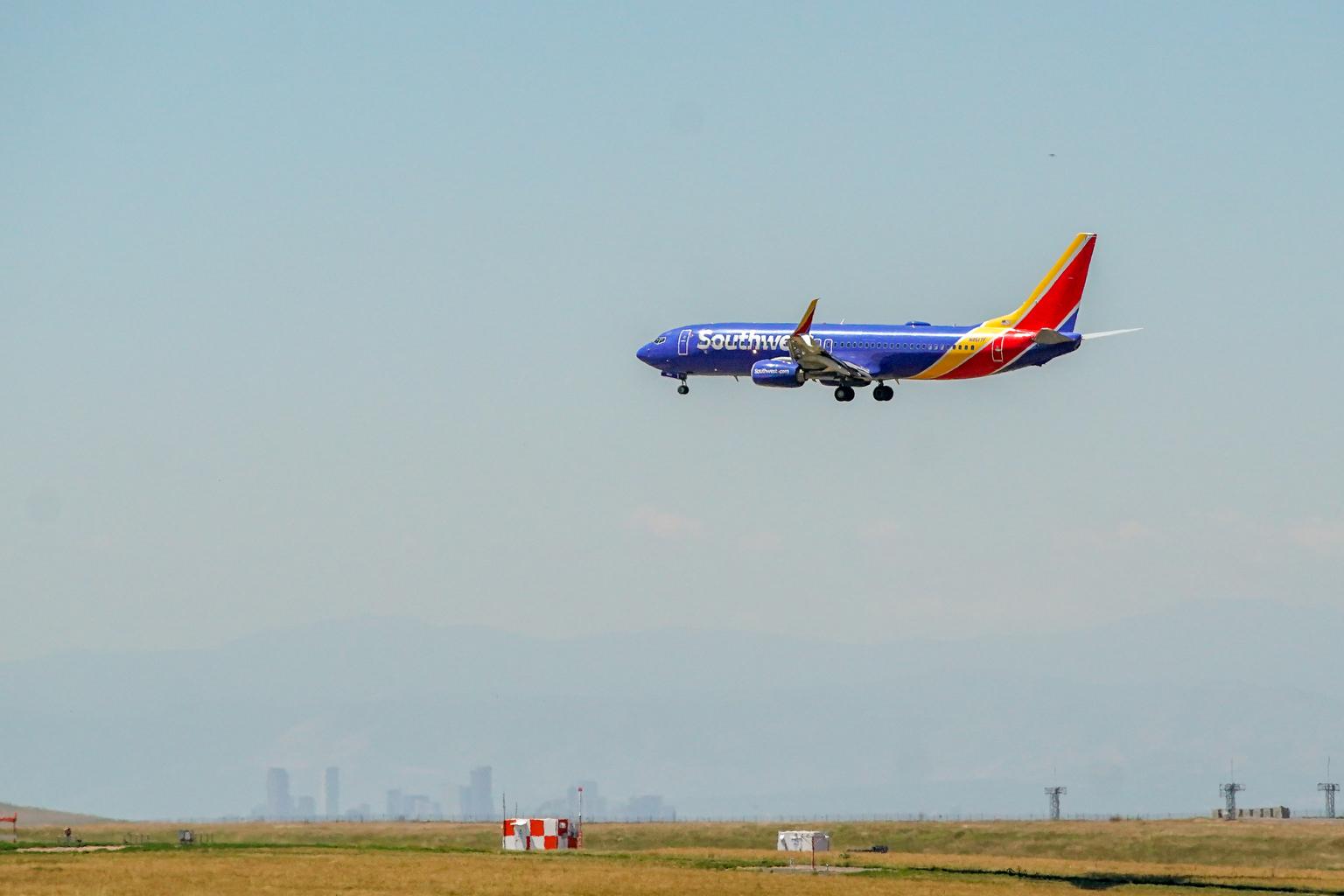
Southwest Airlines will not have to pay a $1.3 million fine, and its union employees will not get the full protections of the Colorado Healthy Families and Workplaces Act.
The result of a two-year legal battle over the airline’s paid leave policies was a major victory for Southwest in its quest to avoid the requirements of new labor law that applies to almost every other employer in Colorado.
“I feel so unbelievably betrayed. I really do,” said Jamie Simpson, a Southwest flight attendant of 19 years and the main union representative for the airline’s Denver-based attendants.
She added: “It hurts when [Democratic leaders] just completely caved to a billion-dollar company. It's just sad.”
But that’s not the end of the legal fight.
Simpson’s union, Transport Workers Union Local 556, sued in state court on Monday to undo the Southwest settlement agreement.
“They're saying they comply when they don't, and it’s a violation of our rights. And so, we're gonna go full throttle,” she said.
Southwest Airlines did not respond to a request for comment.
The contours of the settlement
The state labor department had investigated Southwest for nearly a year before issuing a $1,331,400 fine in March 2022, alleging the airline hadn’t provided Colorado employees with the paid sick leave required under HFWA.
At the time, state investigators found that the airline had “violated nearly every requirement and protection,” under HFWA, which sets requirements for paid sick leave.
It was the largest fine ever issued by the state’s Division of Labor Standards & Statistics — but it was largely undone by a settlement agreement quietly reached by the state and the airline last month.
The settlement agreement reduced the fine by 90 percent — and perhaps more significantly, it declared that the state’s paid-leave protections don’t apply to Southwest’s unionized employees in Colorado. It also promises that state labor investigators will automatically dismiss any future complaints filed by Southwest union employees under HFWA and certain other labor laws.
Southwest employs more than 4,000 people in Denver, it said recently, many of whom are members of a dozen different unions.
The agreement between the state and Southwest was also viewed as a sign of how the state will handle a similar pending fight with United Airlines.
Airlines don’t want to be regulated
At the heart of the dispute was the question of whether the state’s new HFWA law should apply to Southwest.
The law says that employers have to provide six days of paid sick leave per year. Those days can be used not just for illness, but also for going to medical appointments, caring for a family member and getting care after suffering domestic abuse, sexual assault or criminal harassment.
A state website still says that HFWA applies to “all employees” and “all employers” except for federal employees and some railroad employees.
Airlines tried to get themselves exempted back in 2020, when the law went through the state legislature, citing the special needs of operating a complex international travel business. But state lawmakers at the time declined to carve out the carriers, setting the stage for the legal battle to follow.
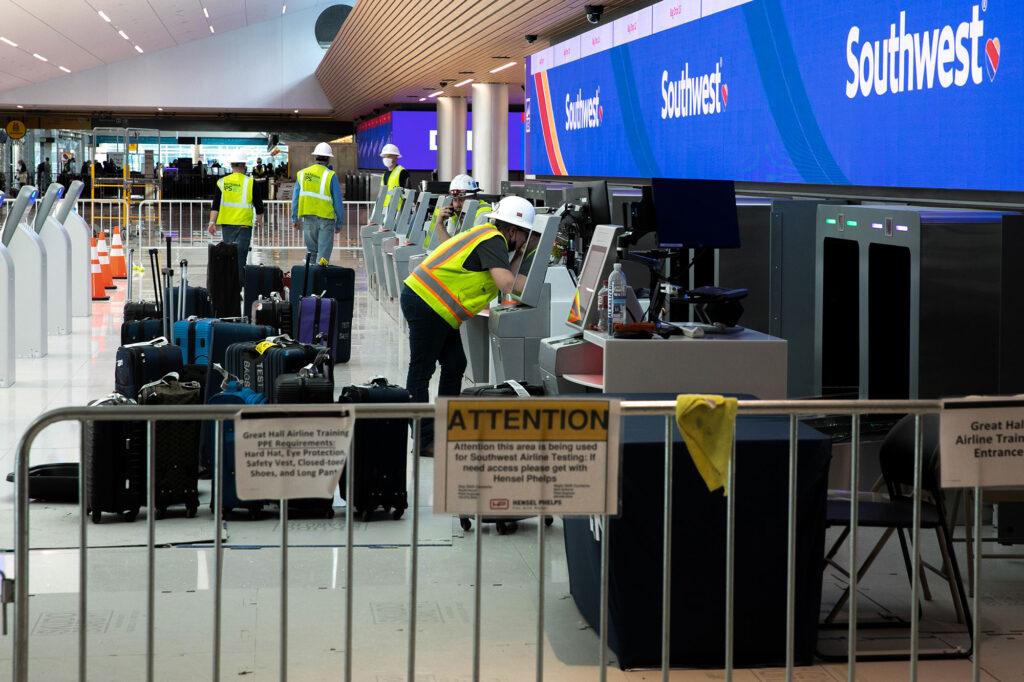
It’s part of a national fight, said Jared Make, with A Better Balance, an advocacy group that has helped to pass paid leave reforms nationwide.
“The settlement here in Colorado is part of a nationwide effort by airlines to avoid coverage of state paid sick time laws,” he said. “And there's a clear pattern in which the airlines willfully refuse to follow the paid sick leave laws that do apply to them. And when held accountable, they seek out alternative avenues to avoid compliance.”
A previous battle played out in Washington, where airlines tried to ensure that flight crews weren’t covered by sick leave requirements. They lost that case.
Investigators said Southwest violated 'dozens of Colorado labor laws'
Not long after the law was passed, state regulators launched an investigation that found Southwest had “violated dozens of Colorado labor laws,” focusing primarily on the new paid sick leave requirements.
The investigation found that Southwest had refused to provide COVID-related time off, had not allowed employees to take sick leave to care for family members, had “illegally penalized employees” and failed to notify them of their rights.
The company also failed to allow workers to carry their leave days over from year to year.
The policies “left thousands of employees without the paid sick leave that Colorado enacted to protect public health against the spread of infection,” the state’s labor investigators wrote in March 2022.
The alleged violations were so extensive that the state could have fined the company more than $11 million, but instead chose to make the company pay only $1.3 million, the citation stated.
The decision was held up by an administrative law judge — and union members believe that they were victorious.
“I started crying. I was so happy that we won, that this hearing officer backed us up and, and he said, everything we've been saying is true and Southwest needs to do the right thing,” said Simpson, the flight attendant union representative. “We thought everything was great.”
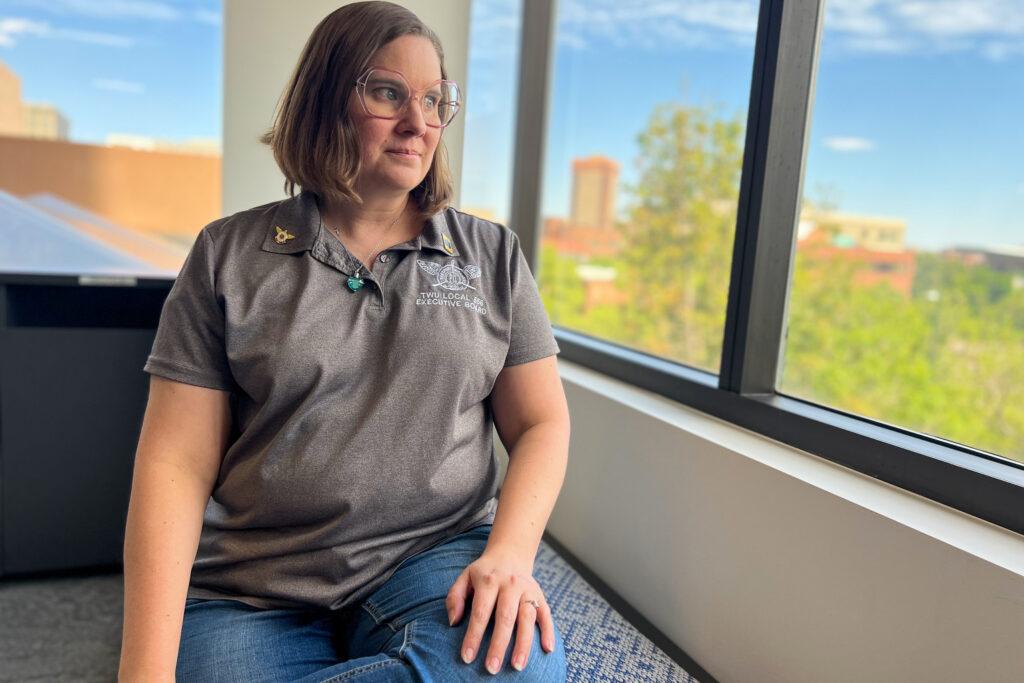
The airline fought back in state and federal court. Southwest’s lawyers argued that it already provides “generous” benefits through its union contracts, saying the state law’s “pervasive and comprehensive” requirements would prove costly.
“The HFWA directly contradicts, and prevents enforcement of, these carefully negotiated [union agreement] provisions,” the airline’s lawyers argued. Obeying the new state law would leave Southwest unable to “prevent abuse of sick leave,” which could lead to flight delays, cancellations and higher prices, they argued.
Southwest generally argues that it should be exempted from the law because it has existing “collective bargaining agreements” with union members, which often provide more paid sick days than the new law required.
But employees allege that the company still isn’t meeting the law. They say they are not allowed to use their paid sick leave for many of the causes covered by HFWA, including caring for family members.
That’s led flight attendants and others to go to work even when a loved one is seriously ill — or to worry about losing their job when they do call out, union leadership said.
Employees also rack up “points” for taking sick days, they said — with too many points leading to termination. The company policies also put other restrictions on paid leave, such as freezing sick time accruals for employees who have too many unpaid absences.
Advocates argue that’s all illegal: State rules say that even if they have negotiated labor agreements with unions, they still must offer sick leave for “the same purposes and under the same conditions” that are guaranteed under HFWA.
Southwest’s union agreements cover a dozen different groups of workers, including pilots, machinists, flight attendants, meteorologists and other specialists.
‘A complete reversal’
With the settlement, the state has largely guaranteed that the airline can continue its current practices, said David Seligman, an attorney with Towards Justice who is representing the flight attendants.
It’s unclear how and why the state agreed to the settlement with Southwest. Union representatives sought and failed to be included in negotiations, they said. The terms of the agreement initially became public through Towards Justice’s public records request.
“Something happened behind closed doors, and all of a sudden there's a complete reversal that carves our clients out of these protections through a backroom settlement,” Seligman said, arguing that the settlement had allowed the airline to sidestep the intent of the law.
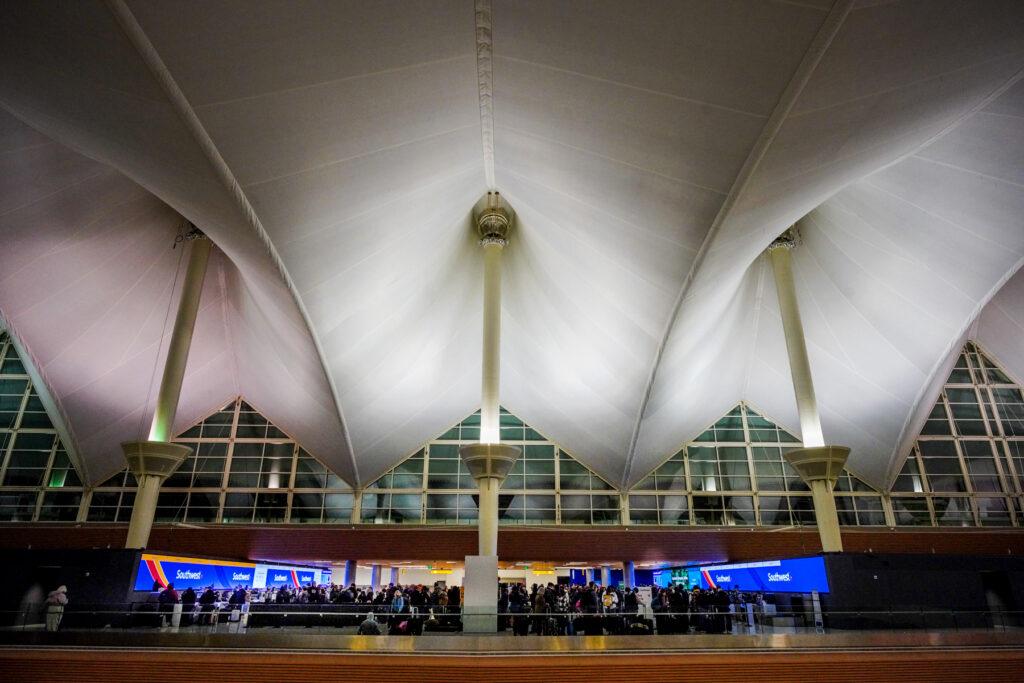
The union lawsuit alleges that the settlement is unconstitutional and denies Southwest employees their legal rights. It asks a judge to declare that Southwest flight attendants in particular are covered by HFWA and to invalidate the settlement agreement, among other conditions.
A spokesman for the attorney general and a spokesman for the governor’s office deferred comment to the labor department.
Asked about the reasoning behind the settlement, a spokesperson for the labor department wrote in an email:
“The State has similar litigation pending and ongoing as to United Airlines, and therefore declines to comment on any party arguments or reasons for its decisions as to litigation and settlement of such claims and defenses.”
The labor department confirmed that it had dismissed a half-dozen complaints against Southwest as a result of the settlement.

